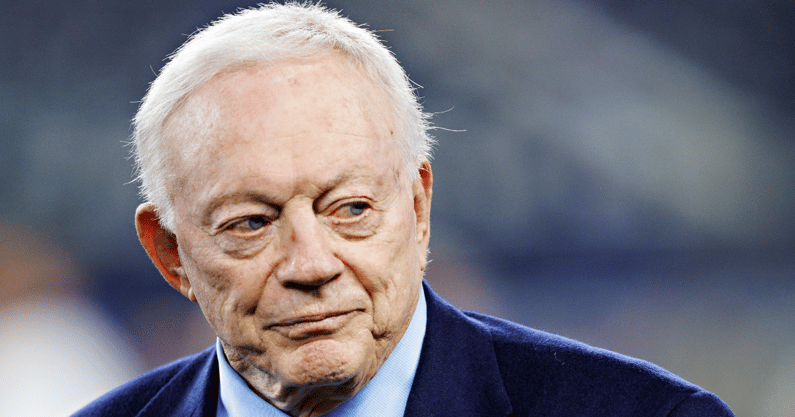Cowboys owner Jerry Jones gifted Clarence Thomas Super Bowl ring

A report from the New York Times unveiling Supreme Court Justice Clarence Thomas’ circle of powerful and wealthy friends revealed Dallas Cowboys owner Jerry Jones to be among some of his most elite company.
The two are apparently so close, the Cowboys’ long-time general manager reportedly gave Thomas a Super Bowl ring, among other perks.
The SCOTUS justice with 31 years of service under his belt has flown on Jones’s private jet, attended training camp practices, and even sat in Jones’ suite during a Dallas-Washington road game in D.C.
Thomas has been in the spotlight recently for failing to disclose several lavish trips and gifts paid for by non-family members, including GOP megadonor Harlan Crow. He recently received an extension to file his financial reports for the 2022 calendar year.
Thomas’s ties to the wealthy and powerful are no surprise. However, the latest controversies surrounding the extra benefits he’s received since his appointment to the seat in 1991 have sparked new discussions about SCOTUS’ code of ethics.
As far as the gifts and perks Thomas received from the Cowboys owner, it’s unclear what the total financial gain has been since the two struck up a friendship. A Cowboys Super Bowl ring from their 1990s championships can go for anywhere from $55,000 to $60,000 on online auction sites.
SCOTUS rules on affirmative action
Public and private colleges and universities may no longer factor race into admissions decisions following a recent SCOTUS decision.
Although the decision only applies to university admissions, the broader idea could be applied to do away with the NFL’s Rooney Rule. The rule demands teams adhere to a quota for interviewing minority candidates for senior positions.
Not only does the Rooney Rule punish teams that do not meet their hiring diversity requirements, but it also rewards teams that have minority staffers hired away or promoted by other teams, in an effort to boost hiring.
In California, Arizona, Florida, Georgia, Oklahoma, New Hampshire, Nebraska and Washington, affirmative action practices were already outlawed at public universities. With the new SCOTUS ruling, the law now applies to private institutions as well.
Justice Sonia Sotomayor, leader of the three dissenters, wrote that the majority opinion contradicts “the vision of equality embodied in the Fourteenth Amendment.”
“The court cements a superficial rule of colorblindness as a constitutional principle in an endemically segregated society where race has always mattered and continues to matter,” Sotomayor wrote.